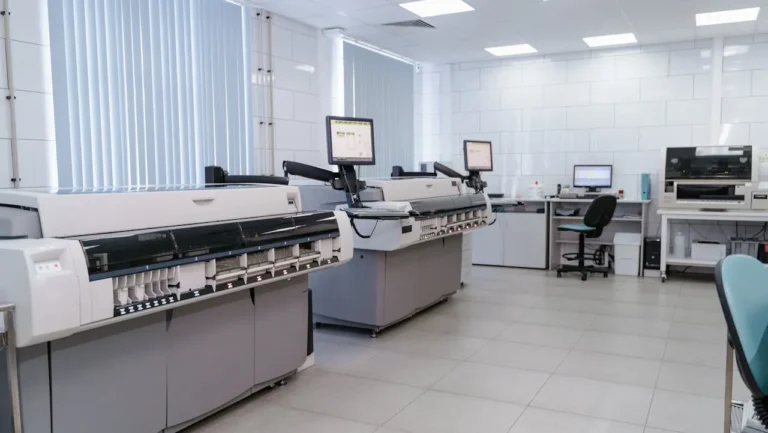
Rocket Lab Successfully Delivers Second iQPS Satellite in Just 25 Days, Marking Its 66th Electron Launch
Rocket Lab Corporation (Nasdaq: RKLB), a global leader in launch services and space systems, has successfully completed its 66th Electron launch, continuing an impressive streak of mission successes and rapid deployment capabilities. The mission, titled “The Mountain God Guards,” lifted off from Rocket Lab’s Launch Complex 1 on the Mahia Peninsula of New Zealand at 15:31 UTC on June 11, 2025. It carried a single satellite—QPS-SAR-11, also known as YAMATSUMI-I—into orbit for the Japanese space startup, Institute for Q-shu Pioneers of Space, Inc. (iQPS).
This launch marks Rocket Lab’s second dedicated mission for iQPS in under a month, a demonstration of its growing reputation as the go-to launch partner for small satellite operators seeking rapid, reliable, and precise orbital insertion. It is also the fourth mission overall that Rocket Lab has executed on behalf of iQPS, with all previous missions achieving 100% success.
Expanding the iQPS SAR Constellation
iQPS is developing a next-generation synthetic aperture radar (SAR) satellite constellation that aims to provide near real-time Earth observation data, day or night, in all weather conditions. This mission’s payload, QPS-SAR-11 (YAMATSUMI-I), is the eleventh satellite in the company’s lineup and represents a critical step forward in the company’s goal of expanding its Earth-imaging capabilities.
Named after the Japanese mountain deity YAMATSUMI, the satellite was deployed into a 575 km circular low Earth orbit (LEO). From this vantage point, the satellite will deliver high-resolution radar images of the Earth’s surface, supporting a wide array of applications including infrastructure monitoring, disaster response, agriculture analysis, maritime tracking, and defense intelligence.
This latest launch further underscores the importance of rapid, repeatable access to space for building and operating satellite constellations. With the addition of QPS-SAR-11, Rocket Lab has now deployed half of the operational iQPS satellite constellation, which includes:
- QPS-SAR-6: The Moon God Awakens – launched in December 2023
- QPS-SAR-9: The Lightning God Reigns – launched in early 2025
- QPS-SAR-10: The Sea God Sees – launched in May 2025
- QPS-SAR-11: The Mountain God Guards – launched June 2025
These mythologically themed missions form the backbone of iQPS’s steadily growing constellation. Over the next 18 months, four more Electron launches are already scheduled to carry additional QPS-SAR satellites into orbit, under a multi-launch agreement between Rocket Lab and iQPS.
A Showcase of Speed and Precision
One of the most remarkable aspects of this latest mission is its rapid turnaround. The “Mountain God Guards” launch took place just 25 days after the previous iQPS mission, an exceptionally fast cadence for dedicated small satellite launches. This rapid execution reinforces Rocket Lab’s unique position in the space industry, offering both flexibility and speed that rideshare missions aboard larger rockets often cannot match.
Sir Peter Beck, Rocket Lab Founder and CEO, praised his team’s performance and emphasized the strategic advantages of dedicated launch services:

The Electron team has delivered another flawless launch and satellite deployment for iQPS, for the second time in 25 days – an outstanding display of the reliability and agility that makes Electron the leader in dedicated small launch. The rapid turnaround in launches and precise orbital deployment achieved for this latest iQPS mission is also a fantastic example of the benefits of dedicated launch for constellation deployment on Electron. We’re looking forward to delivering on this again and again for the line-up of Electron launches this year and next in our multi-launch contract with iQPS.”
Beck’s comments highlight the central benefit of using Rocket Lab’s Electron rocket: dedicated missions provide satellite operators with full control over launch timing, orbital parameters, and payload integration—all critical for synchronizing complex constellations.
A Reliable Partner in Orbit
iQPS CEO, Dr. Shunsuke Onishi, also expressed deep satisfaction with the mission’s success and lauded Rocket Lab’s ability to consistently deliver on tight timelines:
Following the successful launch of our 10th satellite, we are deeply grateful to Rocket Lab team for the smooth deployment of QPS-SAR-11 YAMATSUMI-I into orbit. This achievement is entirely thanks to the Rocket Lab team’s ability to deliver precise and agile launches. We are truly pleased to see our satellites being placed into orbit one after another, marking significant progress toward building our satellite constellation. With three more launches planned this year, we will continue to work closely with our partner companies to steadily advance the development and production of our satellites.”
The strategic collaboration between Rocket Lab and iQPS is built on more than just convenience—it reflects a shared vision of democratizing access to Earth observation data through agile, scalable satellite infrastructure.
Looking Ahead: More Missions on the Horizon
The “Mountain God Guards” mission marks Rocket Lab’s eighth Electron launch of 2025 and continues the company’s upward trajectory as one of the most prolific small launch providers in the world. In total, the Electron launch vehicle has now flown 66 times, with a consistently high success rate that positions it as the industry standard for small payload deployment.
Rocket Lab is already gearing up for its next Electron launch, scheduled to take place from the same Launch Complex 1 in New Zealand within days of the iQPS mission. This sustained launch cadence demonstrates not only the maturity of the Electron vehicle but also the operational readiness of Rocket Lab’s infrastructure, supply chain, and mission integration teams.
Meanwhile, iQPS continues to advance its roadmap toward a robust satellite network, with three additional launches scheduled by the end of 2025. As more satellites join the constellation, iQPS will be able to dramatically reduce the time between Earth imaging passes, eventually targeting a revisit time of under 10 minutes across most of the globe.
This rapid cadence in constellation deployment is made possible in large part by Rocket Lab’s vertically integrated approach, which includes:
- In-house manufacturing of rocket components and spacecraft systems
- Dedicated launch facilities with minimal turnaround time
- End-to-end mission management from payload integration to final deployment
- On-demand launch services that avoid the delays and compromises of shared launch arrangements
The successful deployment of QPS-SAR-11 aboard Electron’s 66th flight underscores Rocket Lab’s critical role in the modern space economy. By providing flexible, reliable, and fast access to orbit, Rocket Lab enables customers like iQPS to meet their ambitious goals for satellite constellation growth.
This latest mission—executed flawlessly just 25 days after the last—cements Rocket Lab’s reputation as a dependable partner for space innovators. As iQPS continues its campaign to build a high-resolution SAR constellation capable of global coverage, Rocket Lab will remain a cornerstone of that vision, providing the launch capabilities needed to make near-real-time Earth observation a global reality.
About Rocket Lab
Founded in 2006, Rocket Lab is an end-to-end space company with an established track record of mission success. We deliver reliable launch services, satellite manufacture, spacecraft components, and on-orbit management solutions that make it faster, easier, and more affordable to access space.
Headquartered in Long Beach, California, Rocket Lab designs and manufactures the Electron small orbital launch vehicle, a family of spacecraft platforms, and the Company is developing the large Neutron launch vehicle for constellation deployment. Since its first orbital launch in January 2018, Rocket Lab’s Electron launch vehicle has become the second most frequently launched U.S. rocket annually and has delivered over 200 satellites to orbit for private and public sector organizations, enabling operations in national security, scientific research, space debris mitigation, Earth observation, climate monitoring, and communications.
Rocket Lab’s spacecraft platforms have been selected to support NASA missions to the Moon and Mars, as well as the first private commercial mission to Venus. Rocket Lab has three launch pads at two launch sites, including two launch pads at a private orbital launch site located in New Zealand and a third launch pad in Virginia.




